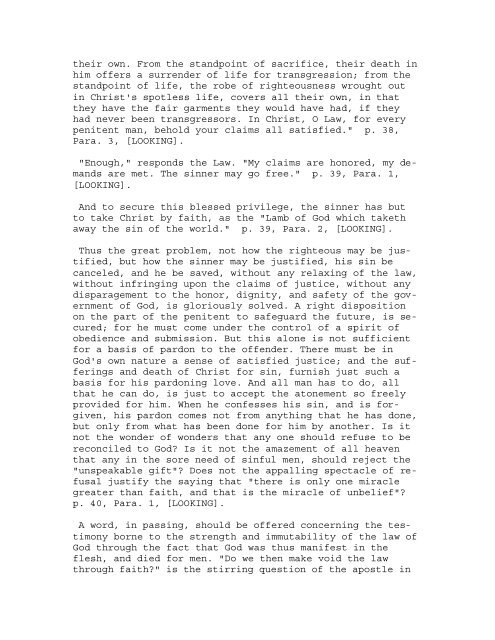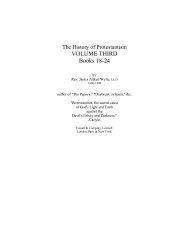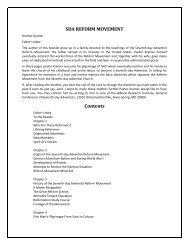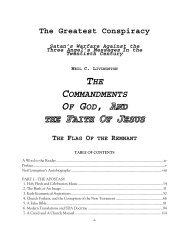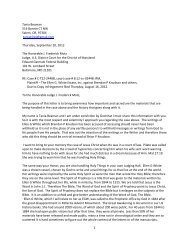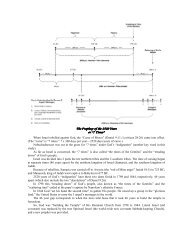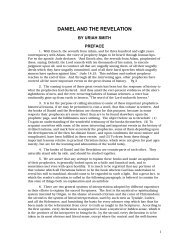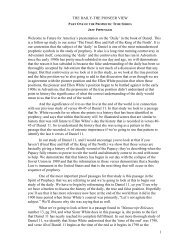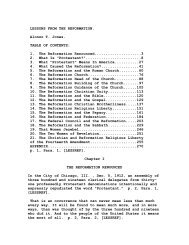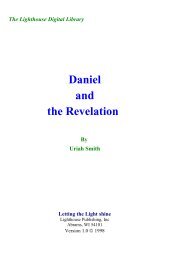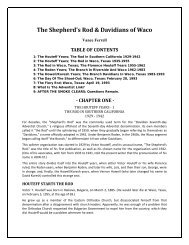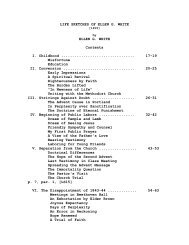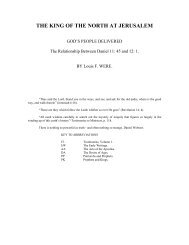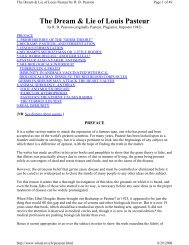LOOKING UNTO JESUS OR CHRIST IN TYPE AND ANTITYPE. BY ...
LOOKING UNTO JESUS OR CHRIST IN TYPE AND ANTITYPE. BY ...
LOOKING UNTO JESUS OR CHRIST IN TYPE AND ANTITYPE. BY ...
Create successful ePaper yourself
Turn your PDF publications into a flip-book with our unique Google optimized e-Paper software.
their own. From the standpoint of sacrifice, their death in<br />
him offers a surrender of life for transgression; from the<br />
standpoint of life, the robe of righteousness wrought out<br />
in Christ's spotless life, covers all their own, in that<br />
they have the fair garments they would have had, if they<br />
had never been transgressors. In Christ, O Law, for every<br />
penitent man, behold your claims all satisfied." p. 38,<br />
Para. 3, [<strong>LOOK<strong>IN</strong>G</strong>].<br />
"Enough," responds the Law. "My claims are honored, my demands<br />
are met. The sinner may go free." p. 39, Para. 1,<br />
[<strong>LOOK<strong>IN</strong>G</strong>].<br />
And to secure this blessed privilege, the sinner has but<br />
to take Christ by faith, as the "Lamb of God which taketh<br />
away the sin of the world." p. 39, Para. 2, [<strong>LOOK<strong>IN</strong>G</strong>].<br />
Thus the great problem, not how the righteous may be justified,<br />
but how the sinner may be justified, his sin be<br />
canceled, and he be saved, without any relaxing of the law,<br />
without infringing upon the claims of justice, without any<br />
disparagement to the honor, dignity, and safety of the government<br />
of God, is gloriously solved. A right disposition<br />
on the part of the penitent to safeguard the future, is secured;<br />
for he must come under the control of a spirit of<br />
obedience and submission. But this alone is not sufficient<br />
for a basis of pardon to the offender. There must be in<br />
God's own nature a sense of satisfied justice; and the sufferings<br />
and death of Christ for sin, furnish just such a<br />
basis for his pardoning love. And all man has to do, all<br />
that he can do, is just to accept the atonement so freely<br />
provided for him. When he confesses his sin, and is forgiven,<br />
his pardon comes not from anything that he has done,<br />
but only from what has been done for him by another. Is it<br />
not the wonder of wonders that any one should refuse to be<br />
reconciled to God? Is it not the amazement of all heaven<br />
that any in the sore need of sinful men, should reject the<br />
"unspeakable gift"? Does not the appalling spectacle of refusal<br />
justify the saying that "there is only one miracle<br />
greater than faith, and that is the miracle of unbelief"?<br />
p. 40, Para. 1, [<strong>LOOK<strong>IN</strong>G</strong>].<br />
A word, in passing, should be offered concerning the testimony<br />
borne to the strength and immutability of the law of<br />
God through the fact that God was thus manifest in the<br />
flesh, and died for men. "Do we then make void the law<br />
through faith?" is the stirring question of the apostle in


